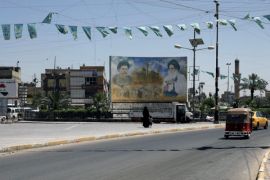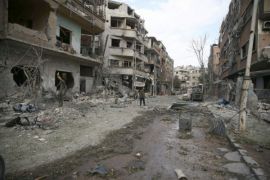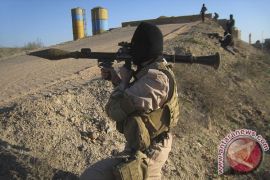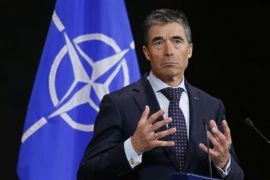"I am convinced that Iraq could become a safety valve to prevent volatility in the price of oil and meet the increasing demand of crude oil from developing countries, including Indonesia," he said here on Tuesday during a lecture on "Iraq`s Contribution to the World Facing the Global Challenges and Crisis" at Pertamina Building.
Al-Shahristani invited Indonesian oil company Pertamina to participate in the management of the huge oil fields in Iraq.
"Opportunities are available for Indonesia to conduct exploration of oil fields in Iraq or cooperate with existing operators," he said.
According to Al-Shahristani, Iraq has a proven oil reserve of 143 billion barrels, or 11 percent of the world`s total reserves, and a gas reserve of 3.5 trillion cubic metres.
Out of the 78 oil fields in Iraq, nine are classified as `super-big`, with reserves of more than 5 billion barrels, while there are 23 oil fields with reserves reaching one billion barrels, all located in south-eastern Iraq.
"However, we have had difficulties in the past three decades because of wars, embargoes, investment shortage, absence of workers and proper infrastructure and therefore, the oil and gas sector has not yet been optimally exploited," Al-Shahristani noted.
He said the Iraqi government was looking for ways to rebuild oil and gas production facilities and expand the capacity of existing fields in the country.
"We need huge investment for reconstruction. Oil fields are Iraq`s main pillars and we are offering investors an opportunity to increase production and revenue," Al-Shahristani added.
Among the big oil projects is the Kashegan oil field in the Kazakh region near the Caspian Sea, which is estimated to have an oil reserve of 39 billion barrels, with a potential to produce 1.5 million barrels a day.
Another significant oil field is the Majnoon field, estimated to have a reserve of 39 billion barrels, with a production potential of up to 1.8 million barrels a day. The Rumaila, Zubair, West Qurna 1 and Wesst Qurna2 oil fields also have similar capacities.
"Iraq is right now carrying out five oil field projects at a scale bigger than ever before in the oil industry," Al-Shahristani stated.
Regarding the country`s gas fields, he said Iraq had three fields, Akkas, Mansuriyah and Siba, with a total production capacity of about 700 billion cubic metres, which could be used as a source of energy for power plants and the petrochemical industry.
With such potential, Al-Shahristani said, Iraq could become an oil and gas producing country that could meet global crude demand until 2035, which is estimated to reach 110 million barrels a day, 20 million higher than the present level.
"Eighty percent of the needs come from developing countries in Asia. As an OPEC member, Iraq could contribute to meeting the demand. OPEC itself could meet 40 to 45 percent of the oil needs," he said.
Meanwhile, Pertamina`s director of downstream business, Muhammad Husein, said the company was still assessing its prospects in Iraq.
"Our strategy is to start by taking a portion of the oil fields. Pertamina will not become an operator in view of our funds," he explained.
In 2002, Pertamina won the bid for Block 3-Western Desert, which had a reserve of 3 billion barrels, but the company stopped the project due to security conditions, Muhammad said.
(D017/H-YH/INE/S012)
Editor: Suryanto
Copyright © ANTARA 2012





